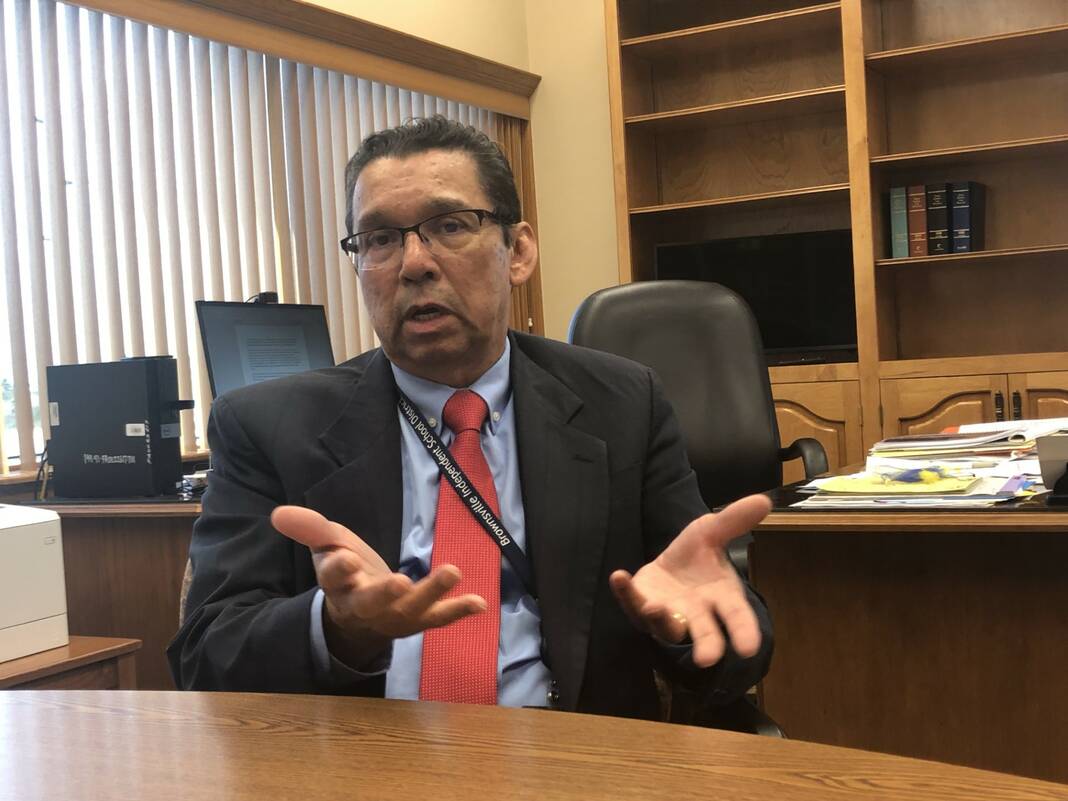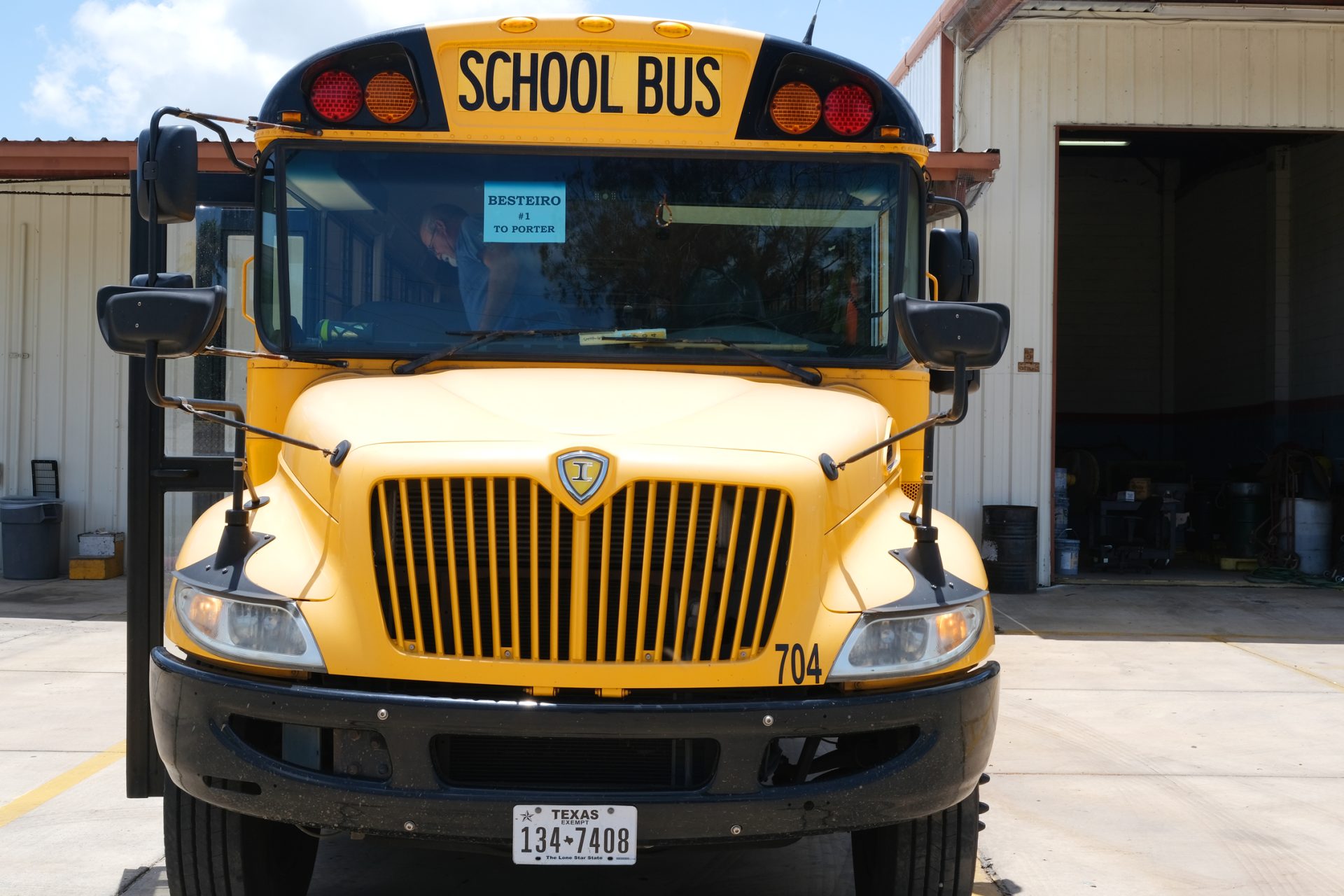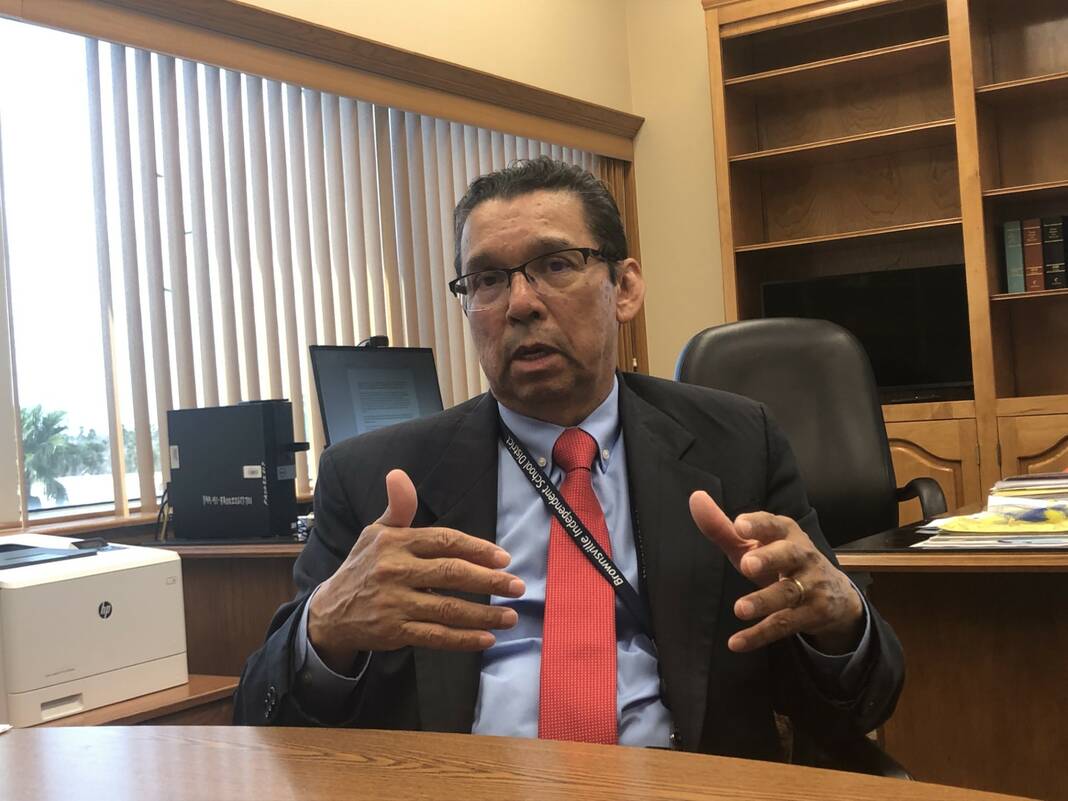|
Only have a minute? Listen instead
Getting your Trinity Audio player ready...
|
Thanks to the standoff at the Legislature between vouchers and school funding, and multiple related factors, the Brownsville Independent School District faces a best-case scenario $16 million deficit even before it begins drafting next year’s budget.
The actual number depends on how much of the district’s $116 million fund balance the BISD Board of Trustees will allow interim Superintendent Jesus M. Chavez and his administration to use to craft the district’s 2024-2025 budget, and how many efficiencies the district can find.
“The other part that makes it more complex for us is because of the property value study that the state does,” Chavez said in an interview earlier this week.
“They randomly select areas, they don’t do the whole state. Cameron County was selected. The property values that came out were way higher than our local values. What the state tells you is, well, you should have corrected this much in local dollars, but because your appraisal value was lower, you didn’t correct that, but we’re not going to correct that. We’re taking away those dollars from you that you thought you were going to get,” he said.
The state originally said BISD’s local property taxes should have generated $22 million more. BISD appealed and Texas lowered the figure to $14 million, Chavez said.
“Getting back to the Legislature, they had four special sessions. What we were hoping they would do was an increase in the basic allotment, the foundational element of school funding. The basic allotment has not been increased since 2019” when it was raised to $6,160 per child, he said.
“That’s four years the districts have not gotten an increase. If you look at those four years, we have probably had 17% inflation during those four years, so we’ve lost a lot of buying power,” he said.
Whenever the state does raise the basic allotment, districts will be obligated to pass some of that on as a teacher salary increase, Chavez said.
“So the Legislature failed,” he said, repeating himself for emphasis. “The Legislature failed. They failed (to) provide the districts funds for teacher raises and also, again, for the districts to be able to do what they need to do,” he said.
“For us, it makes it an even tougher budget year because not only did we not get the state help, but it fits into the voucher piece. The governor wants and the lieutenant governor wants, and they’ve dug their heels in to say if you don’t let us do vouchers, we’re not going to do school funding.”

“The state is sitting on over $4 billion dollars that they were going to give to education … and my understanding is that the amount has grown, they could have gone to up to even $6 billion the fourth special session, but they didn’t get it done,” Chavez said.
“Which again we are against the vouchers. Public education is against vouchers. We are against the way the state is trying to do that. Our big reason for doing that is we believe that what will happen is that public dollars for public education will get drained away from public schools to go into private schools,” he said.
“Right now there hasn’t been the will to provide the dollars to us. In addition to that, there have been years where we don’t get sufficient dollars and the pie can only go so far. When you split it up for more people you get a lesser amount. Public education is going to get a lesser amount. Some of the dollars are going to go to private schools,” Chavez said.
“And then on top of that the district has been planning for the loss of the ESSER funds. During the pandemic the federal government was very good about helping cities, counties, school districts. So they gave us three rounds of funding the last this year, but we the district are funding some continuous things with ESSER funds, but now I don’t have those ESSER funds. I’ve got to make up those dollars locally,” he said.
“I want to continue the tutoring again, the after-school tutoring. I’ve got to replace those dollars with local dollars, but remember I am at a deficit, so in order to replace that program, oh and by the way we are buying software, educational software for our students and teachers, $8 million dollars out of ESSER funds. All of that is to say we’re going to have to cut some of our spending, which we will, particularly on the educational technology, the software piece, because right now we’re spending $8 million dollars. I’ve got to lower that to around $4 or $5 million and cut $3 or $4 because I can’t cover all of it,” he said.
The bottom line, Chavez said, is that the the board likely “will let me use some fund balance to cover the deficit but not totally. We can’t go and raid that fund balance. A district our size it is recommended by the (Texas Education Agency) that we carry a fund balance of about $100 million. As of right now, it’s $116 million so I’ve got some money that I can use, but I don’t want to use all of it because I’ve got to plan for the following year,” he said.
BISD did a staffing study a few years ago, comparing itself to five larger and five smaller districts in the area.
“It came out that our district was overstaffed in a number of areas and they’re recommending that we make some adjustments. I believe we’ve got to make some adjustments in order for me to cover — the number we’re going to talk about is we’re going to start off with a $26 million deficit for next year. That’s our starting point,” he said.
“Developing our budget this next year we’ve got to be more efficient. We’ve got to look under every rock, in every corner, to see can we have some savings, some efficiencies to offset the lack of dollars this year,” Chavez said.

“Now, my hope would be that the Legislature does approve funding for school districts this next time around. The power to do that rests with the governor right now. He’s just not up to doing it. We’ll see what happens after the election. He hopes that more Republicans are on board to pass vouchers.
“Now again, public education, we’re against vouchers. I can’t say it any stronger than that. And that’s the reason they were defeated, that’s the reason the governor didn’t get his way is on the Republican side. Democrats joined Republicans to defeat vouchers because some of the Republicans don’t feel that they will benefit from vouchers, either.”
The Board of Trustees will have a budget committee meeting starting at 8:30 a.m. in the board room of BISD’s central office building at 1900 Price Road.
“We want to make sure we get a lot of input from communities and also from our employees. All of our employees are going to receive a survey to ask them where can we save dollars? What are some district efficiencies that we can look at? And we need to cut the budget so what suggestions do you have as an employee?”
Chavez said principals will form three committees, for elementary, middle and high schools as the budget process goes forward.
“Then we’re going to have a committee of central office, an operations group that works with maintenance, with auxiliary services, and separately, another committee that works with curriculum and instruction.
“All of those committees will work towards identifying what savings, what kind of efficiencies, what kind of staffing adjustments need to be made so that we can identify these $15 million to $16 million that we need to cut from the budget,” he said.
“Of course that information will come to a district-level committee made up of school representation and my executive staff. Whatever work we do then feeds into the board of trustees,” he said.





